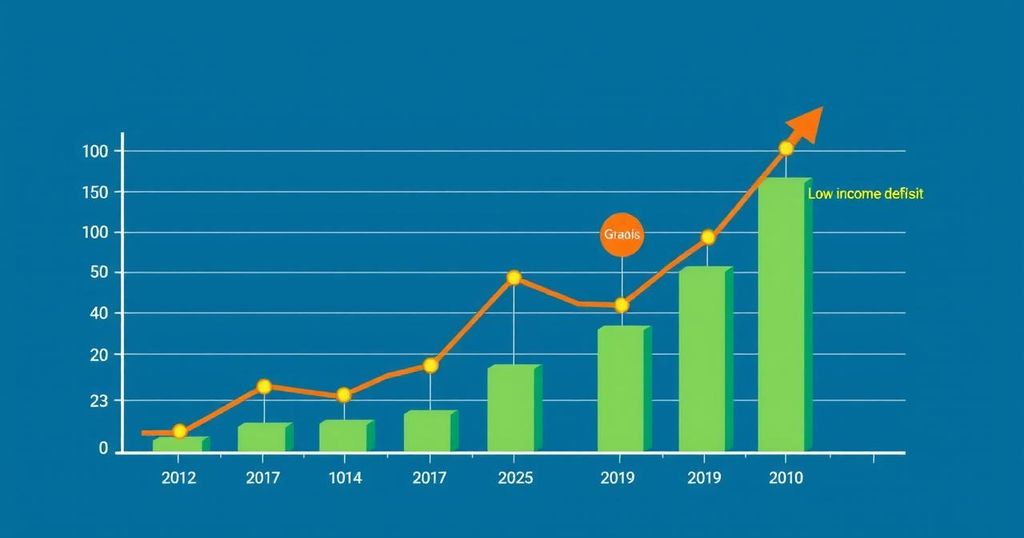Fitch Solutions projects a modest primary income deficit for Ghana due to debt restructuring, which has notably reduced external debt service obligations. Interest payments are set to decrease significantly over the next few years. However, a reduction in US aid may pressure the current account, and net current transfers are expected to contract in 2025.
Fitch Solutions has forecasted a modest primary income deficit for Ghana as a result of ongoing debt restructuring measures. The restructuring agreement with commercial creditors has successfully replaced previous dollar bonds with new instruments, thereby reducing Ghana’s external debt service obligations by $3.5 billion during the years 2024 to 2026.
The UK-based firm noted these modifications have already resulted in a reduction of interest payments by 1.3% of GDP for 2024. Further reductions are anticipated at 0.9% of GDP in 2025 and 0.6% in 2026 in comparison to earlier bond terms. Additionally, a moratorium on debt servicing until May 2026 has been achieved through the agreement with official creditors.
Consequently, Fitch Solutions predicts that Ghana’s primary income deficit will remain at a manageable level of 3.1% of GDP, which is notably lower than the five-year pre-default average of 5.5%. However, Ghana’s current account is projected to encounter pressure due to significant cuts in US international aid.
The US, which accounts for about 20% of Ghana’s total aid receipts, recently announced a drastic 90% reduction in USAID contracts. This move is expected to adversely affect the country’s secondary income surplus. While the firm anticipates an increase in remittance inflows and assistance from other donor nations, these are unlikely to fully compensate for the decline in US aid.
Moreover, Fitch Solutions predicts a 3.0% contraction in net current transfers in 2025 due to these developments.
In summary, Ghana’s primary income deficit is expected to remain low as a result of successful debt restructuring efforts, reducing debt service obligations significantly. However, challenges persist with reductions in US aid, which may impact the current account and secondary income surplus. Despite these pressures, remittances and aid from alternative sources are expected to mitigate some adverse effects, although not entirely.
Original Source: www.ghanaweb.com






